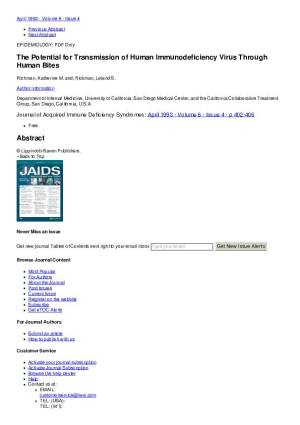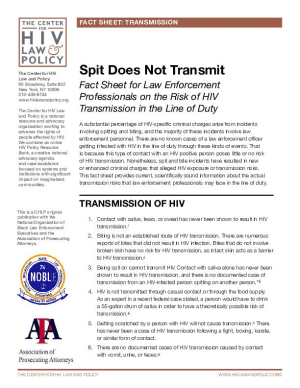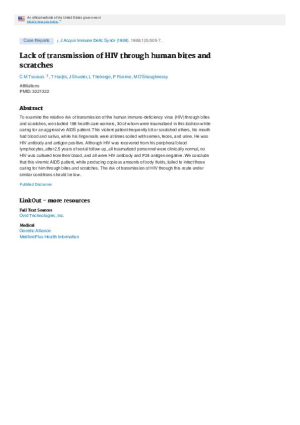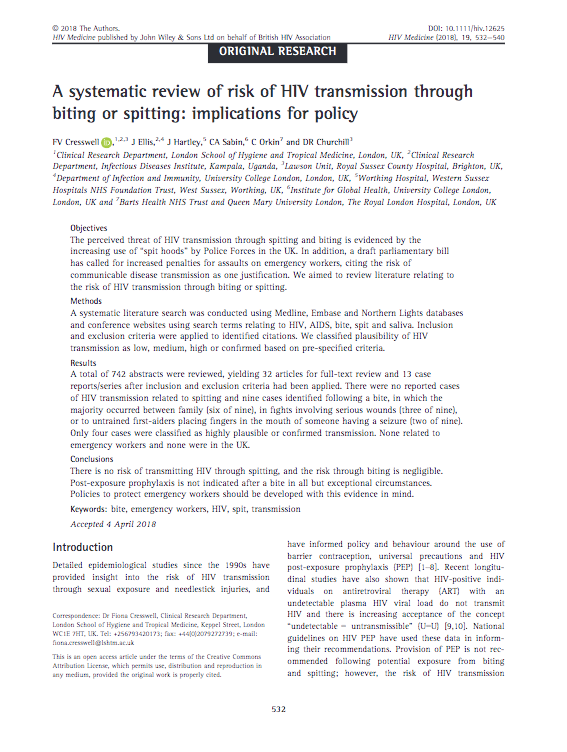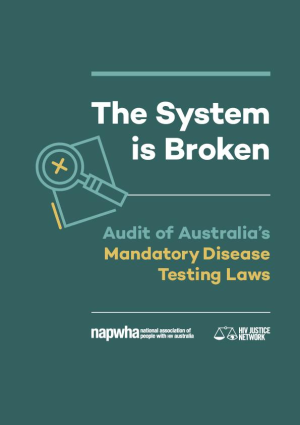Reviews evidence related to the potential for HIV transmission through human bites. Concludes that while biologically possible, transmission remains unlikely, risk is epidemiologically insignificant and as yet, has not been well documented.
Using science to prove your argument
Biting and spitting
The following studies show that there is negligible to no risk of HIV transmission from spit or a bite.
Spit Does Not Transmit: A Fact Sheet for Law Enforcement Personnel, The Center for HIV Law and Policy, the National Organization of Black Law Enforcement Executives and the Association of Prosecuting Attorneys (2013)
This 2013 factsheet produced by the Center for HIV Law and Policy, the National Organization of Black Law Enforcement Executives and the Association of Prosecuting Attorneys provides current factual information about the HIV transmission risks law enforcement professionals may face in the line of duty (aiming to address the frequent overstating of risk). States there is no known case of a law enforcement officer being infected in the line of duty through spitting or biting.
Lack of transmission of HIV through human bites and scratches
Report of small study following an HIV-positive man with severe brain damage and poor dental hygiene (causing bleeding gums) who was frequently violent to hospital staff. After 2.5 years follow up, all of the 30 people he’d bitten or scratched remained HIV-negative.
A systematic review of risk of HIV transmission through biting or spitting: implications for policy
A systematic literature search was conducted using Medline, Embase and Northern Lights databases and conference websites. Results showed that there was no risk of transmitting HIV through spitting, and the risk through biting was negligible. Post‐exposure prophylaxis was not indicated after a bite in all but exceptional circumstances. Policies to protect emergency workers should be developed with this evidence in mind.
- Alternative links
- Español (Traducción automática), Français (Traduction automatisée)
The System Is Broken – Audit of Australia’s Mandatory Testing Laws
Audit, led by Sally Cameron, HIV Justice Network’s Senior Policy Analyst, on behalf of HJN and the National Association of People with HIV Australia (NAPWHA) revealing that mandatory testing laws are at odds with national HIV testing policy and are operating outside the structured and highly successful HIV responses managed by clinicians and departments of health. The audit found that in many instances, the laws, their implementation, and monitoring include numerous structural failures, usually occurring in multiple states.

